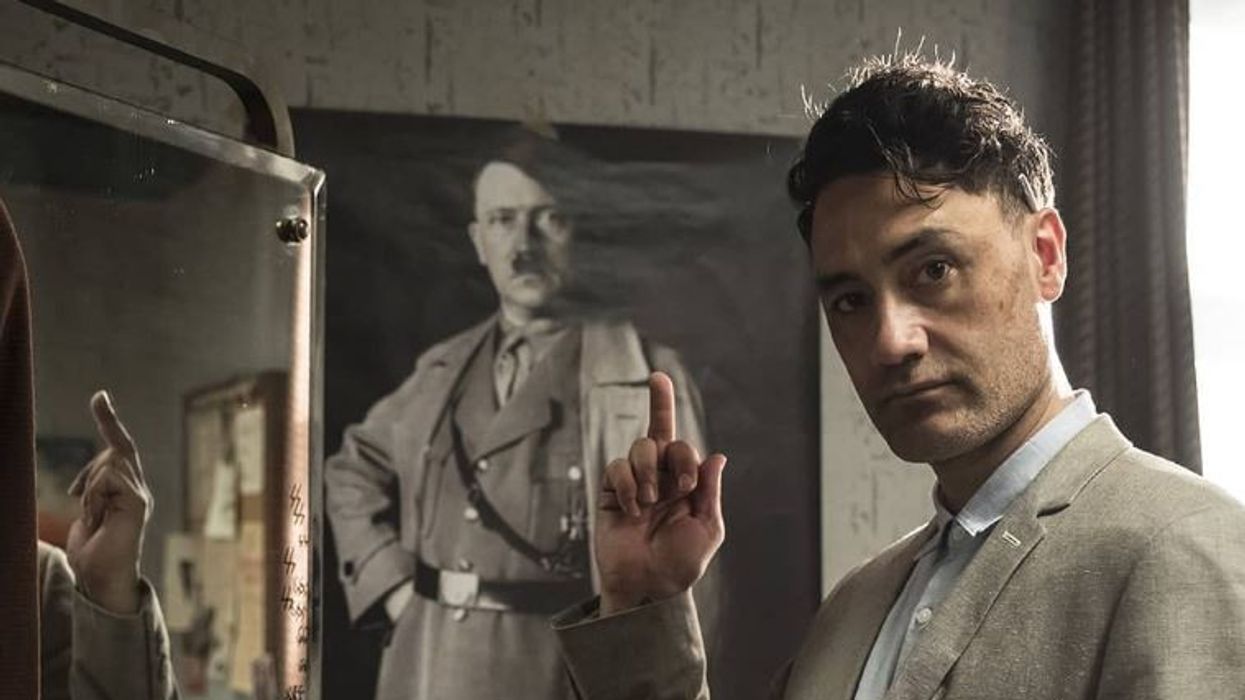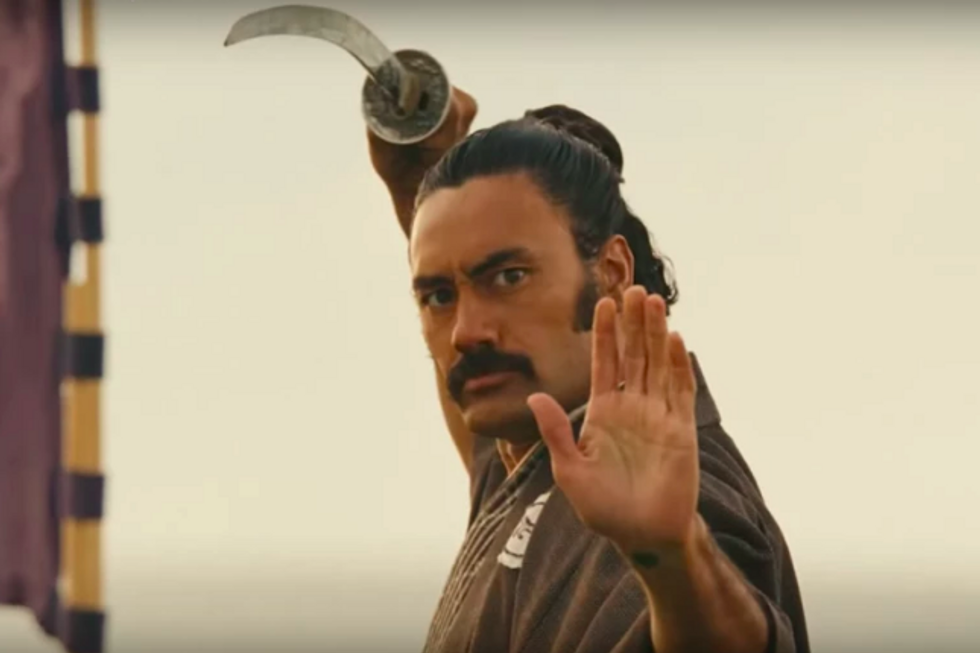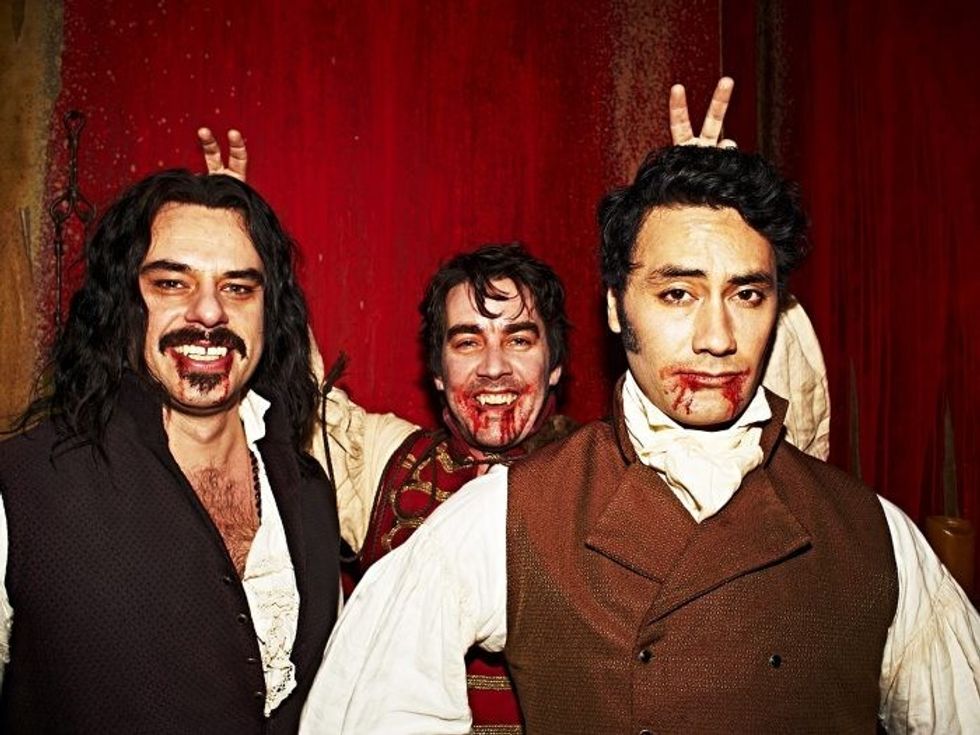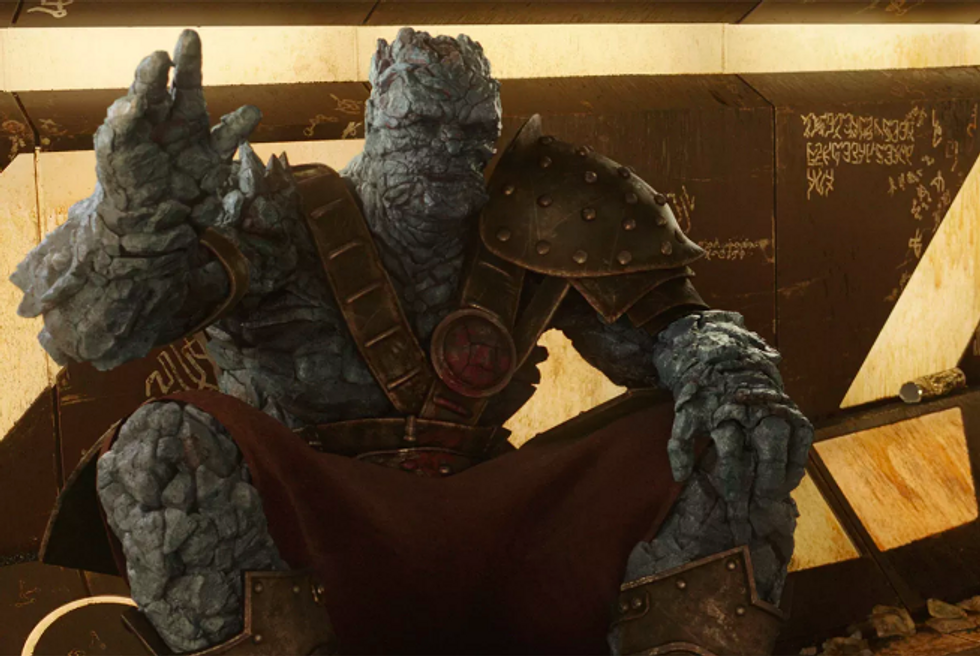'We’re in a Very Cool Place Right Now Where Hollywood is Running Out of Ideas': Taika Waititi on Breaking All of the Rules
One of our favorite filmmakers made a stop in Toronto to provide a Master Class.

Eagle vs. Shark, Boy, What We Do in the Shadows, Hunt for the Wilderpeople, Thor: Ragnarok: Even the titles in Taika Waititi’s beloved filmography sound like a joke running wild, bursting with imagination. Waititi’s career is rooted in subversion, finding the humor in life’s confusion and dysfunction.
While perfecting his two latest projects—Bubbles and Jojo Rabbit—Waititi served as a juror at the Venice Film Festival, before flying to the 2018 Toronto International Film Festival where he mixed offbeat comedy with a rich dose of wisdom. No Film School sat in on his Master Class to gather choice insights.
Born to a Maori family in East New Zealand, Waititi never had childhood dreams of becoming a filmmaker. “I’m not one of those guys who grew up with a Super 8 camera,” he shrugged. “Wanting to be an artist in 1980’s New Zealand was not cool, you’d get the shit kicked out of you. There were three jobs where I grew up: working in the forestry, driving trucks in and out of the forestry, and selling dope.”
Luckily, Waititi’s parents—his mom was a schoolteacher and his father a painter/illustrator—kept their son open-minded. He spent most of his 20s painting and didn’t discover filmmaking until he was nearly thirty. “I saw Akira, and suddenly understood the potential of filmmaking. It showed me you could really mix things up,” he recalled, "that there are no rules.”
For a self-declared rule-breaker, this was music to his eyes. He started making goofy short films for a local 48-hour contest, right up until one of his shorts—Two Cars, One Night—was nominated for an Academy Award. How did his indirect route to filmmaking lead to such instant success? He found originality in his own, weird life, and, as a late-twenties painting rascal, wasn’t afraid to embrace eccentricity.
While Waititi is deliciously weird, his key advice is something you’ve probably heard before: “Write what you know.”
Pretty simple, right? But here’s the depth: this obvious advice comes from a nuanced foundation. Channeling his schoolteacher mother, Waititi reminds us that we still have to do the work. “When my friends have great ideas, I always say, ‘Why don’t you write that?’ Then they tell me they’re gonna wait until they get some funding. That’s not how it works. If you want to write something you’re passionate about, write it!” He repeated himself for emphasis: “Write it!”
Two Cars, One Night was based on conversations Waititi remembered having as a kid, specifically, the interactions he had in the car park outside a particular pub. “Parents would go inside the pub and get wasted, and their kids would just hang out in the car park and have ridiculous conversations. For me, it was an interesting backdrop.” Waititi went on to shoot his Academy Award-nominated film at the very same pub.

Later on, Waititi’s feature-length Boy expanded on his close-to-home short, then became the highest grossing film in New Zealand's local box office history. According to Waititi, it’s still his best work. “It’s still my favorite, because it’s so very personal,” he admitted. “I wouldn’t say it’s autobiographical, but it’s shot in my hometown, with a lot of my family, in the house I grew up in.” As a result, it’s chock full of irreverent humor: an oddball comedy about child neglect.
Criticisms of Waititi’s work often come from the same place as praise: he doesn’t take things seriously—but the filmmaker sees this as a strength. “Luckily I come from a culture where we make fun of ourselves a lot. The humor we find is in making light of the situation we’re in: everything from being poor to starving or spending time in jail.” He has tried writing drama—Boy and Hunt For the Wilderpeople both started out as depressing affairs—but admits that he doesn’t know how to do sad movies. “I went back to what I was good at.” His expression turned apologetic. “I’m a reprobate.”
Beyond wild laughs, Waititi’s movies all possess distinct auteur specificity. Writing what you know means far more to him than pinpointing what feels real and funny, far more than a history lesson on cultural specificity. It means that indigenous stories can be whatever feels truest to the individual. “It’s important that we put indigenous stories in the hands of the people who own those stories,” Waititi insisted. “I’m not a Maori filmmaker, I’m just a filmmaker,” he clarified, "but I feel very proud that in the community where I was growing up, where there was once only three jobs, now there are people with dreams.”

Despite his success, Waititi admits that he’s still learning and that he still has doubts. He combats them with useful insight from his friend and collaborator, Flight of the Concords’ Jermaine Clement. When the pair was co-directing What We Do in the Shadows—a mockumentary about Vampire housemates—Waititi began to worry: “We’re turning a 5-minute idea into a feature film! But then Jermaine said ‘the world needs stupid shit’ and I realized..." he flashed a mischievous grin, “Who wants to go and see a film that reminds us how terrible the world is? We need ridiculous movies to remind us that we’re the dumbest, clumsiest animals.”
"We’re in a good place. We need to ride the wave and ensure our own vision, where stories and voices don’t conform to [what people expect]. We have to keep people guessing.”
The best part? These stupid, crazy ideas—like Waititi’s, or yours—can actually happen. Just this past year, FX handed out a 10-episode order to Waititi and Clement to executive produce a half-hour comedy based on the feature version of What We Do in the Shadows.
Waititi lowered his voice to a solemn whisper. “We’re in a very cool place right now where Hollywood is running out of ideas. They are scrambling, scrambling for new stories. And where do they turn? Indigenous people, ethnic people. They turn to anywhere outside of America for films that they can remake, because that’s where the interesting ideas are.” Waititi nodded, a newfound urgency in his typical deadpan. “We’re in a good place. We need to ride the wave and ensure our own vision, where stories and voices don’t conform to [what people expect]. We have to keep people guessing.”

Waititi is following his own advice. Now that he has several feature-length films under his belt, he’s taking his art to the next level. “I want to do something uncomfortable, so I don’t get complacent or fall into a pattern,” he explained. His biggest movie to date, Thor: Ragnarok—where he included himself as the voice of the fan-favorite alien, Korg—gave him that chance.
Next up are two even wackier projects. While a far-cry from Waititi’s New Zealand hometown, they’re inevitably infused with his rebellious spirit.
First is Bubbles, the true story of Michael Jackson’s chimpanzee, told in stop-motion animation. “I visited Bubbles in Florida, I interviewed him,” Waititi nodded sagely, “and no one’s been brave enough to tell the story. Many have tried. It’s overdue.”
The second is a live-action feature with Fox Searchlight, Jojo Rabbit, a WWII Comedy where Waititi—himself a Maori Jew—plays Hitler. “What better ‘fuck you’ to that guy?” Waititi reasoned.
Even as an adult, Waititi is still breaking rules, and he clearly hopes you’ll do the same. What are you waiting for?













